In a small consultation room in Kashmir, Nadia Ishfaq listens intently as a one of the MSF counsellor discusses one case and speaks about the challenges. As a clinical psychologist working as a Mental Health Supervisor with Doctors Without Borders India/Médecins Sans Frontières (MSF), Nadia leads a team of professionals providing mental healthcare across the region. Her journey with MSF began in 2023, after nine years of clinical practice, when she decided to move from direct patient care to supervision.
A Day in the Life
Nadia’s days are filled with a careful balance of administrative work and personal connections with her team. She leaves home at 8:30 AM for the office, where she manages paperwork, coordinates with team members, and ensures all documentation is properly maintained.
When visiting Primay Health Center(PHC) locations, her journey can take up to three hours of travel time. “I spend until about 3 PM sitting with my team members, discussing not just their cases but also how their personal lives might be affecting their work,” she explains. “I make sure I’m not just focused on the work aspect but also their self-care and potential burnout.”
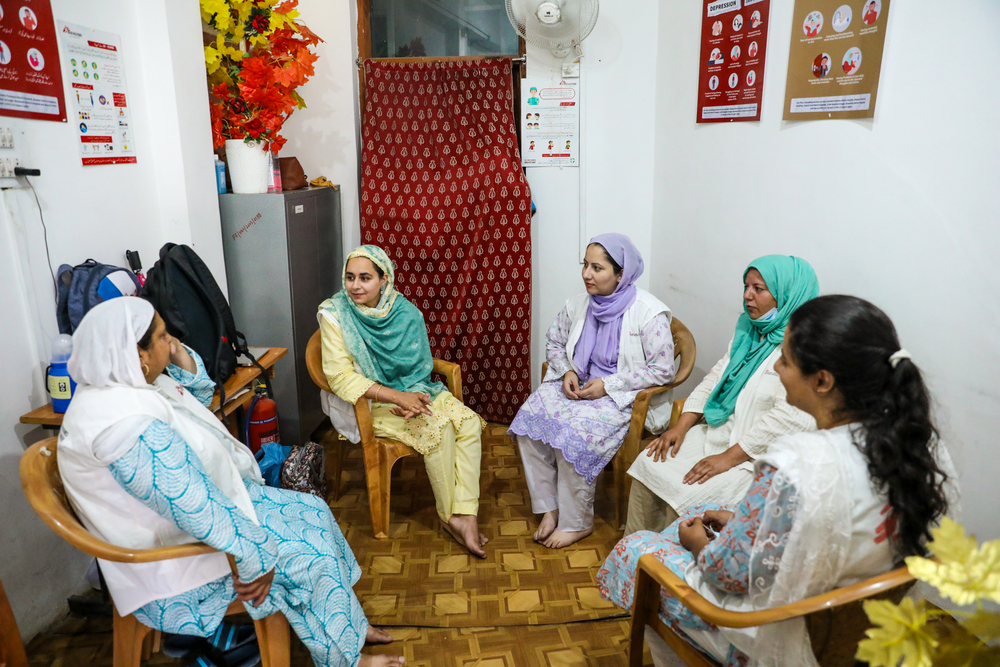
Her phone rings constantly throughout the day with team members seeking guidance: “Nadia, I have this issue with data,” or “My client is showing this problem, how should I respond right now?” In between these calls, she conducts training sessions and team meetings, where they discuss both successful cases and challenging ones.
“Communication is key,” Nadia emphasizes. “The more I meet with my team, the better our communication develops, and the better we work together.”
A Community in Silent Crisis
The mental health landscape in Kashmir presents unique challenges. Years of uncertainty, combined with modern stressors like academic pressure and family expectations, have taken their toll on the population. The suppression and repression of emotions following social changes have contributed to the mental health crisis.
Many people struggle with symptoms but don’t recognize them as mental health conditions.
This delayed recognition is compounded by stigma. Nadia recalls a patient who refused to visit the psychiatric hospital, saying: “My daughter lives near there. If someone sees me entering that building, they’ll think I’m taking medication for mental illness and no one will marry her.”
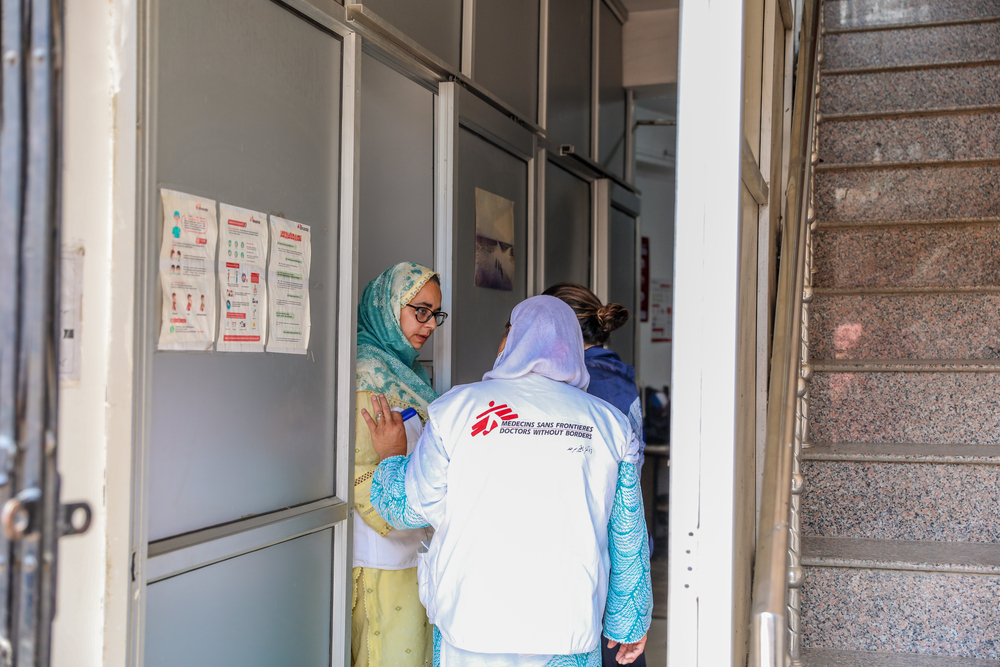
The Power of Support Systems
One pattern Nadia consistently observes is the crucial role of family support in recovery.
This insight guides how Nadia’s team works with patients’ families, educating them about mental health conditions while respecting patient confidentiality.
“We don’t tell families what caused the condition—that stays confidential,” Nadia emphasizes. “Instead, we explain what the condition is and how it impacts behavior. We help families understand that they need to adjust their approach, not the patient.”
This delicate balance extends to cases involving substance abuse or relationships that families might not approve of. “We focus on the symptoms and treatment, not breaking confidences that would prevent the patient from returning to us.”
Nadia has developed specific protocols for family involvement that maintain trust while providing necessary support. This approach has been particularly important when working with children and adolescents, where parental understanding is crucial but privacy must still be maintained.
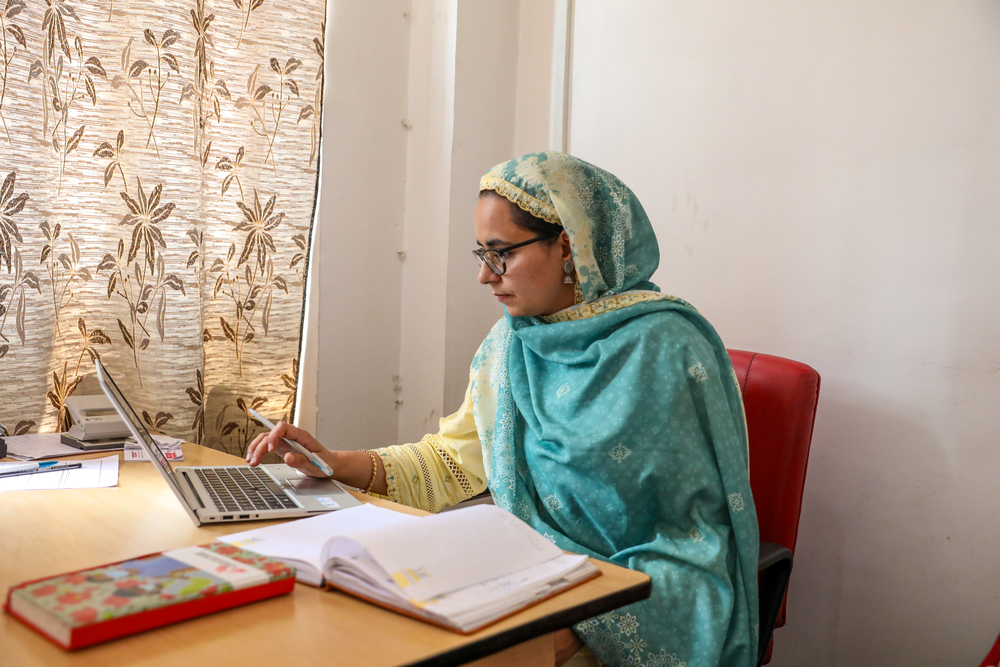
Challenges and Resilience
Supervising teams across different locations presents its own challenges. Some team members work in Srinagar, others in Sopore or Tral regions. Transportation issues, especially in winter, can make coordination difficult.
“In winter, no vehicles are available before 8:30 AM, and shared taxis won’t leave until they have nine passengers,” Nadia explains. “Either you pay for the entire vehicle yourself, or you’re late to the office.”
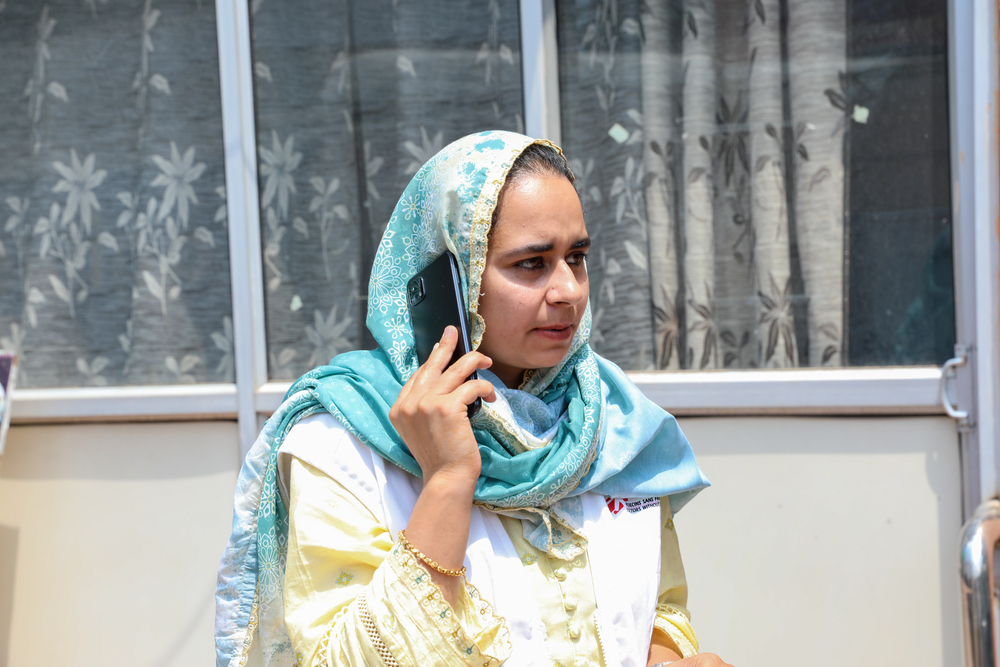
The geographical spread of her team creates unique management challenges. “Managing different personalities requires flexibility and patience,” she admits. Remote supervision means developing creative solutions to ensure accountability while maintaining trust.
Cultural differences also present obstacles. “I’m from an urban area, and some team members are from rural areas. Sometimes I struggle to understand their perspectives and difficulties. But the more time we spend together, the better I understand their contexts.”
The alarming rise in certain conditions has stretched the team’s resources.
Despite these challenges, Nadia finds deep meaning in her work. She’s especially moved by the resilience she witnesses in her patients.
“Humans are very resilient,” she reflects. “We have that tendency to bounce back if given the right environment, love, affection, and care. Because at the end of the day, we are human beings, not machines that can be fixed with simple oiling. For us, oiling is love, attention, and communication.”
Finding Balance Through Art
The emotional weight of hearing patients’ stories can be heavy. “In this profession, you become a sponge, absorbing all the negativity that patients bring,” Nadia shares. “Sometimes their stories match your own experiences, creating an even deeper level of empathy. It can be hard not to take that home with you.”
To maintain her own mental health, Nadia has developed personal coping strategies. “Sharing is crucial—I talk with colleagues or my supervisor about what’s bothering me, without breaking patient confidentiality.”
Nadia also applies her professional expertise to help her team manage stress and prevent burnout. “I conduct relaxation and mindfulness sessions for our staff, teaching them to stay present in the moment,” she explains. “These practices help us process difficult emotions and restore our energy for the challenging work we do.”
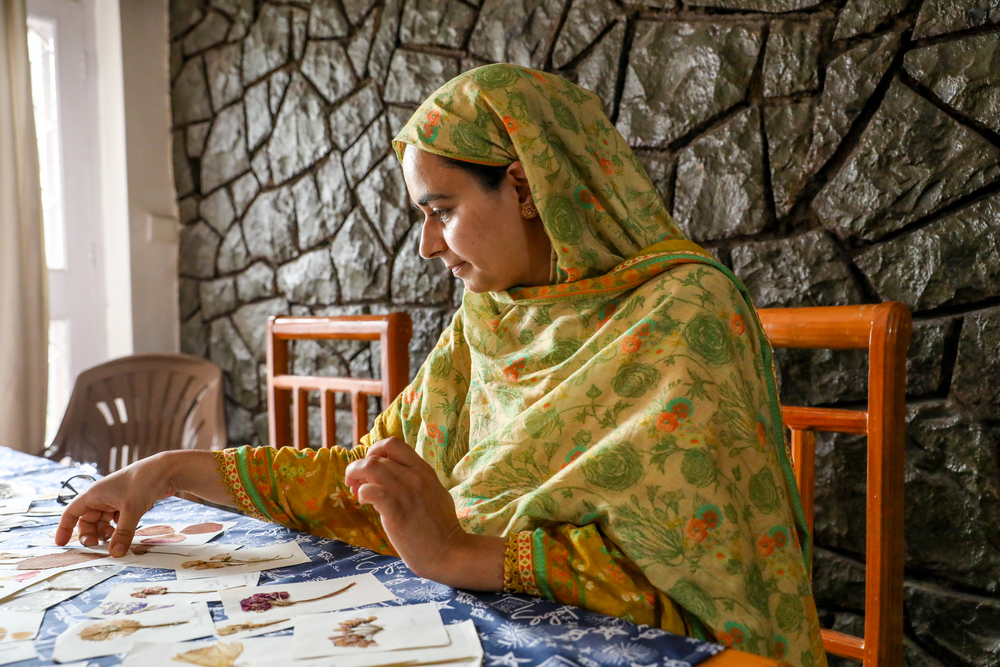
She describes a simple but effective technique: “I guide them to focus on their breathing, to be fully present. ‘It’s 12:35 now. I’m not in 12:34, neither am I in 12:36. I’m in this exact moment.’ This mindfulness creates a mental reset that helps manage overwhelming emotions.”
These sessions extend beyond her immediate team to include drivers, HR staff, and finance personnel—recognizing that everyone in the organization contributes to mental health support and can benefit from these practices.
Writing has become an important outlet for Nadia. “When something affects me, I write about it. It depends on my mood—sometimes it’s prose, sometimes poetry. I often post these writings on social media to keep a record of my thoughts.”
Before becoming a mother, Nadia enjoyed a unique artistic hobby. “I used to collect flowers and dry them in books, then create collages with them,” she recalls with a smile. “I still have that collection at my maternal home. I’d gather any interesting flowers or leaves I found on the ground, dry them, and preserve them.”
This attention to beauty and preservation mirrors her approach to her patients—seeing the value in what others might overlook, and helping to preserve and strengthen what’s already there.
Looking Forward
As MSF continues its work in Kashmir, Nadia hopes to see mental health services expand.
Nadia envisions a future where mental health support is normalized and accessible throughout Kashmir.
She also emphasizes the need for specialized services for children and adolescents. “Young people today face unique pressures from social media, academic expectations, and the political situation in Kashmir. We need tailored approaches that address their specific needs.”
Looking ahead, Nadia believes that professional development and training for local mental health workers will be crucial. “Building capacity within communities ensures sustainable support long-term. When local professionals understand both clinical best practices and cultural contexts, they can provide the most effective care.”
Through education, community engagement, and compassionate care, Nadia and her team at MSF are helping to change perceptions of mental health in Kashmir—one conversation, one session, one life at a time.












